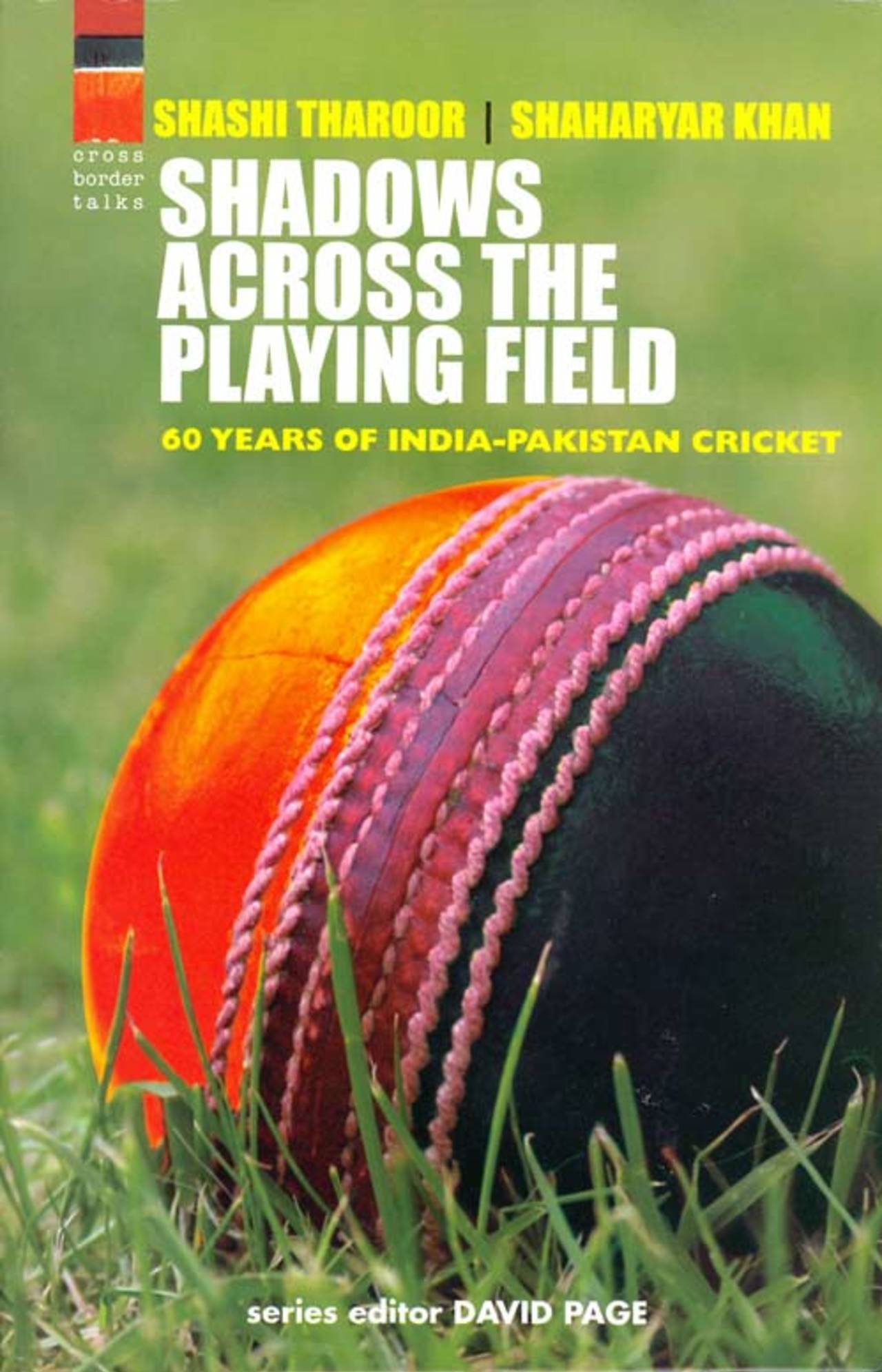Neighbours divided
In which two diplomats and cricket lovers look at a half-century of India-Pakistan cricket and the attendant politics and tell it like they see it
Suresh Menon
Dec 12, 2009, 1:45 AM

The title is from a line in Ramachandra Guha's A Corner of a Foreign Field; both writers have acknowledged a debt to that excellent history of the game in the subcontinent. The authors have taken off their diplomatic hats in an attempt to say it like it is, and that is the strength of the book. Their respective backgrounds as UN under-secretary general (Tharoor) and Pakistan's foreign secretary and chairman of the Pakistan Cricket Board (Khan) allow them to place what Guha has called sibling rivalry in the context of the political and cultural changes.
In separate essays Tharoor and Khan lend their perspective to a complex relationship between neighbours who are divided by a common thread. Tharoor reveals his hand early when he writes, "In India, the state has an army; in Pakistan, the army has a state." He points to the 1960-61 series as the one that "marked the definitive parting of ways, both on and off the field".
Of the Indian Prime Minister Atal Behari Vajpayee's visit to Pakistan he says, "While [Vajpayee] was being greeted effusively by his hosts, they were planning to stab him in the back by seizing the heights above Kargil." This is no diplomat speaking but a realist, and one pained by the needless duplicity of politicians across the border.
Tharoor writes naturally, with the delicate touch of the finest Indian batsmen, like Mohammad Azharuddin; Khan's effort, by contrast, is more Mudassar Nazar than Zaheer Abbas. Yet it is Shahryar, with his insider's knowledge, who reveals how close the subcontinent came to losing the 2011 World Cup thanks to the Indian board's lethargy. "To my horror," he writes, "the BCCI had not completed the preparations for our joint bid." At the ICC meeting, India had to ask for more time to present their case, and were given an extra month.
Khan begins his essay with his years of growing up in Bhopal, and gives us a Pakistani perspective of the Partition thus: "Political statements by Nehru, Patel and the Congress leadership confirmed for Jinnah that Partition had been agreed by the Congress Party in order to commit Britain to leaving the subcontinent as early as possible. Having swallowed the bitterest pill of accepting a communal division of India, the Congress Party was intent on strangulating the 'illegitimate child' at birth."
Tharoor's analysis is historical and combines a passion for the game with a clear-headed view of the politics of the period. Occasionally the former makes him sound like a frustrated fan
He thinks Indian umpiring was as bad as Pakistani, except that Indians "were more subtle in giving their decisions because Indian umpires, unlike their Pakistani counterparts had long experience of umpiring in first-class cricket".
Tharoor's analysis is historical and combines a passion for the game with a clear-headed view of the politics of the period. Occasionally the former makes him sound like a frustrated fan, as when he says about the 1978 tour: "The Indians dropped every catch that came their way." In a curious way, this is part of the charm of his writing and does not detract from his understanding of the bigger cricketing picture: "The biases ingrained in the Pakistani umpiring tradition, while once helpful for a fledgling cricketing nation, were now undermining the hard-earned reputation for excellence of the players themselves." This was something that Imran Khan recognised and sought to correct by insisting on neutral umpires for the 1989 series.
How cricket survived the wars, the posturing, the arms race between the two countries is interesting; how it will survive the latest, the terrorist attack in Mumbai last year, is less certain. The November 2008 killers, according to Tharoor were "recruited, trained, equipped and financed from across the border, as many others had been before them…" while Shahryar feels "it remains to be established whether the terrorist attack was sponsored or condoned by a Pakistani agency".
What is interesting is the conclusion. It is the romantic Tharoor who says that liberals on both sides may hope that one day India and Pakistan will enjoy relations comparable to those between the United States and Canada, but "sadly, I do not expect to see that kind of transformation in my lifetime". The pragmatic Shahryar, however, believes that "cricket will again provide the catalyst to bring about harmony, tolerance, and good neighbourly relations between the two countries".
This is indeed a book of contrasts.
Sixty Years of India-Pakistan Cricket
by Shashi Tharoor and Shaharyar Khan
Roli Books
Rs 295, 189pp

by Shashi Tharoor and Shaharyar Khan
Roli Books
Rs 295, 189pp
Suresh Menon is a writer based in Bangalore